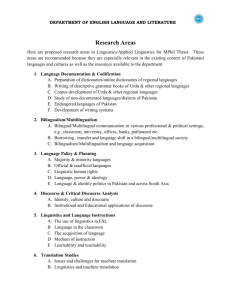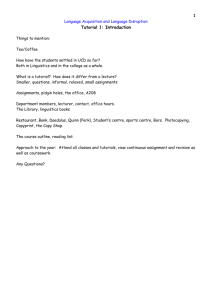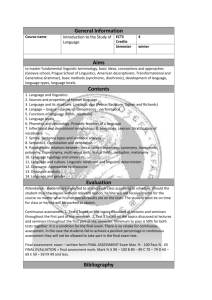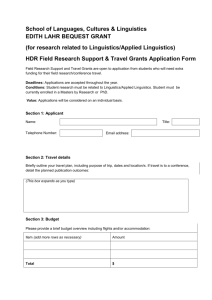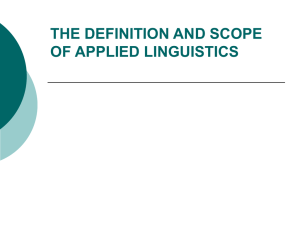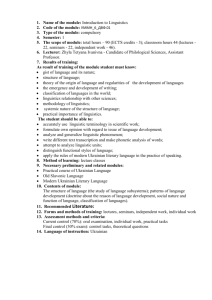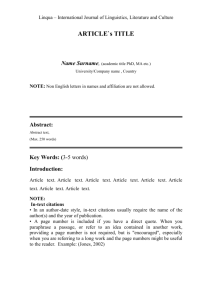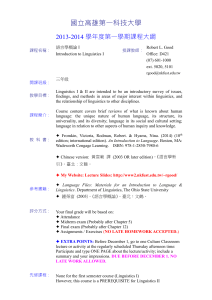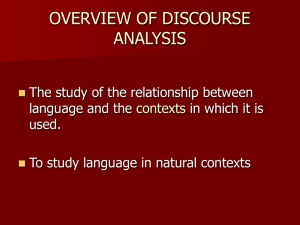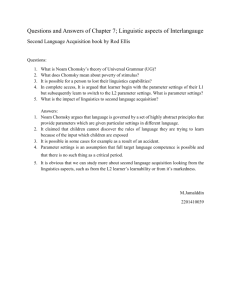presenting the fundamentals of foreign language teaching
advertisement
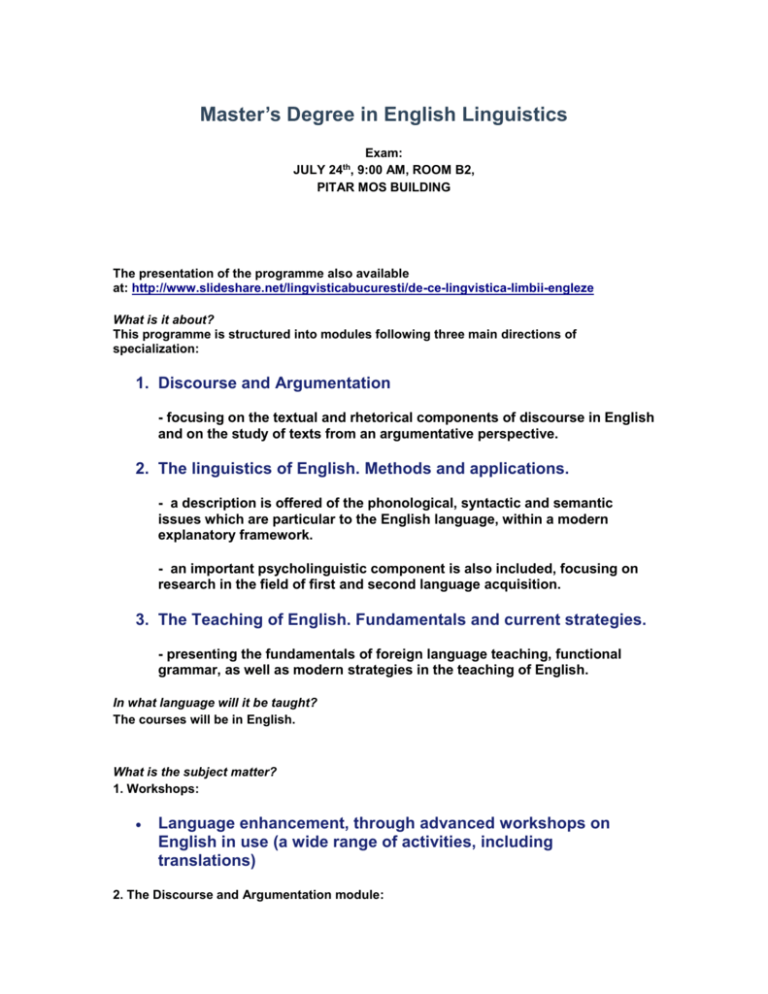
Master’s Degree in English Linguistics Exam: JULY 24th, 9:00 AM, ROOM B2, PITAR MOS BUILDING The presentation of the programme also available at: http://www.slideshare.net/lingvisticabucuresti/de-ce-lingvistica-limbii-engleze What is it about? This programme is structured into modules following three main directions of specialization: 1. Discourse and Argumentation - focusing on the textual and rhetorical components of discourse in English and on the study of texts from an argumentative perspective. 2. The linguistics of English. Methods and applications. - a description is offered of the phonological, syntactic and semantic issues which are particular to the English language, within a modern explanatory framework. - an important psycholinguistic component is also included, focusing on research in the field of first and second language acquisition. 3. The Teaching of English. Fundamentals and current strategies. - presenting the fundamentals of foreign language teaching, functional grammar, as well as modern strategies in the teaching of English. In what language will it be taught? The courses will be in English. What is the subject matter? 1. Workshops: Language enhancement, through advanced workshops on English in use (a wide range of activities, including translations) 2. The Discourse and Argumentation module: Language and culture Text typology Discourse analysis Linguistic representations in mass media Pragmatics Sociolinguistics 3. The Linguistic Description of English module The syntax of English and comparative syntax The structure of the lexicon Lexical semantics The history of the English vocabulary The theory of linguistic changes Varieties of English Phonology 4. Language acquisition: The acquisition of English as the first language The acquisition of English as a second language 5. The Teaching of English module: Learning a foreign language Methods and directions in teaching a foreign language Functional grammar and teaching programmes 6. The computational Linguistics module: Methods in natural language processing on the computer: corpus linguistics, statistical methods, glossaries, online dictionaries Who teaches? Members of the Department of English within the Faculty of Foreign Languages and Literatures and from the Faculty of Mathematics and Informatics. Can I also study abroad? YES! During the study programme you can benefit from an Erasmus grant! The linguistics staff have entered into Erasmus agreements with universities from Italy (Venice, Pisa), Spain (Barcelona), Cyprus (Nicosia). After graduation you may opt for a doctoral program in Romanian or abroad. Many of our former master students were accepted with a scholarship in doctoral programs in the country (The doctoral school “Languages and Cultural identities” at the Faculty of Foreign Languages and Literatures, Bucharest University), as well as the US (Rutgers University, University of Connecticut, Central University of New York, Texas University at Austin, University of Massachussetts Amherst), the Netherlands (Universiteit Leiden), Italy (Universita Ca' Foscari Venezia). Where can I get a job after graduation? Students who learn linguistics acquire a number of useful skills, such as: analytical thinking the ability to produce a logical argumentation the ability to formulate and test hypotheses communication skills in a diversity of registers and situations, advanced knowledge of English For these reasons, graduates of this master programme are well-prepared for a variety of positions in a wide range of fields: academic teaching and research interdisciplinary research work in the fields of artificial intelligence, clinical linguistics, forensic linguistics etc. pre-university education, at any level translating or interpreting positions in public administration, NGOs, governmental institutions, information services positions in mass-media, public relations and advertising communication and translation expert in companies event organizer (conferences, symposiums, congresses, business conference) lexicographers, glossary writers consultant linguist in the judicial, economic, medical field, etc Admission requirements: NO written exam! Graduates of the Faculty of Foreign Languages and of the Faculty of Letters who have a good knowledge of English may apply. The entrance exam consists of: (1) the evaluation of the candidate’s file and (2) an interview. The file must contain: a CV (in English); a letter of intent (in English, a maximum of 2 A4 pages); a summary of the Bachelor thesis viewed as a research project (in English, maximum 2 pages A4). Budgeted places: 16; Fee-paying places: 10

